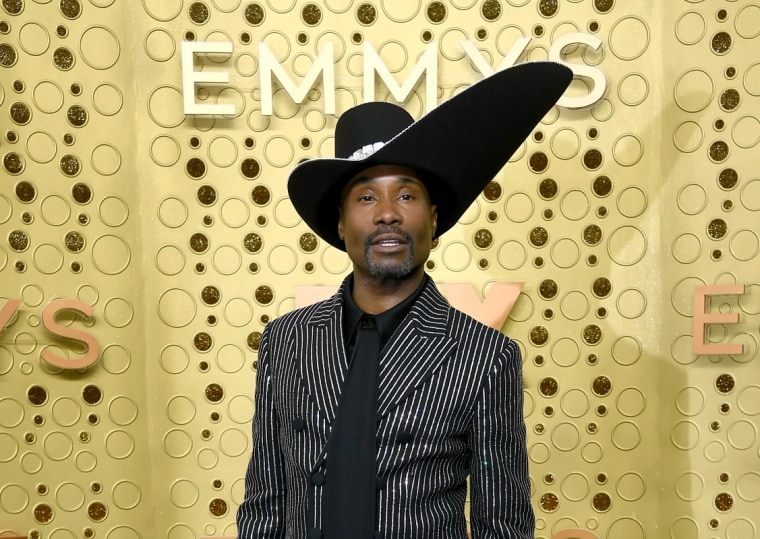 Photo by Frazer Harrison / Getty Images
Photo by Frazer Harrison / Getty Images
Billy Porter opened up about feeling unwelcome in the music industry at the beginning of his career, especially during one particular experience involving Céline Dion.
In honor of his new album Black Mona Lisa, the recipient of Vulture's honorary Master of Culture degree talked about the homophobia he faced after winning Star Search in 1992.
"It was traumatizing," Porter said while detailing the making of his 1997 self-titled debut, which was "all about the smoke and mirrors of trying to make the world think I was straight, that I was masculine enough to exist."
"My voice, my singing voice, had been my savior. It was what allowed me to dream beyond my circumstance, and then for the first time in my life, my voice didn’t matter," he continued, "All they were concerned about was who I was fucking behind closed doors on my own private time."
That said, the young Porter believed he should still listen to his label's advice, which turned him into someone he didn't recognize. And this continued until the label decided to give his song "Love Is On The Way" to Dion, who went on to re-record it for the blockbuster film, The First Wives Club.
"They gave it right over to her! Same producer produced it for her. I was like, 'I did not come here to be a demo singer for fucking Celine Dion! I’m done!,'" Porter continued, before clarifying that he "loves" Dion and this wasn't about "My Heart Will Go On" singer.
"It’s about the systems of oppression that mute and dismiss our contribution to the world," he explained, "It happened in that moment, and I said, 'I’m done. If this is all the music business has to offer me, I’m done. She can have it, y’all can have it, I’m out.'”
So for the next two decades, the multitalented artist decided to focus on his acting career, eventually rising to stardom with his Tony-winning performance in the "Kinky Boots" musical, which was composed by '80s pop icon Cyndi Lauper. He then went on to become a bonafide A-lister after starring in Pose, FX Network's critically acclaimed drama about N.Y.C.'s underground ballroom community.
After independently releasing three records, Porter went on to say he had "no intention of coming back to the music industry in a mainstream way" until he recorded Black Mona Lisa for Republic Records, under the condition that he would be able to make "mainstream pop on my Black f*****y-ass terms."
"Yes! You can see it now!," Porter concluded. "She free, bitch!"
Read Porter's entire interview with Vulture here.


